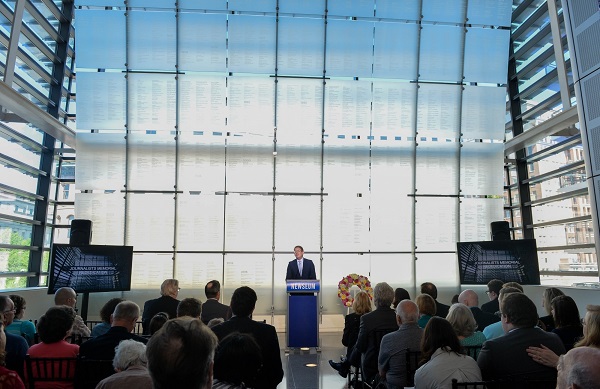Washington, The press museum in Washington, the Newseum, opened on Tuesday for the last time after more than 22 years in operation.
The first day of 2020 will also be the first day when the US capital does not have a museum devoted to journalism, housing items such as the telecommunications antenna from one of the World Trade Towers, several Pulitzer Prizes and photos with historic significance, the Efe news reported.
In addition, the 50 display cases that each day exhibited the front pages of the main newspapers in each US state will no longer be updated.
During the past 22 years, the Newseum – located midway between the Capitol and the White House, a symbolic location – has not only been a tool to raise awareness about the importance of a free and fair press but also an active space that has hosted press conferences and other news events.
Its exhibits have dealt with the evolution of journalism and its key role in the struggles for civil rights and freedoms, as well as with crucial moments in modern history such as the fall of the Berlin Wall or the 9/11 terrorist attacks.
In addition, the museum has been a focus of discussion and training on the rights included in the First Amendment to the US Constitution, which defends freedom of assembly, expression, press and religion.
Sonya Gavankar, the Newseum’s Public Relations Director, said that the Freedom Forum Institute, the organisation that owns the museum, is mired in financial problems that are forcing it to sell the building housing it since 1997. By selling the building, the Institute hopes to be able to continue its efforts to provide training and information about the press.
“We know visitors love the Newseum … but it has struggled financially for a number of years and continuing to operate in our current location has proven unsustainable,” the Institute says on the museum’s Web site.
However, Gavankar noted that the Institute is planning to reopen the museum at another site in the future.
The current building will become the property of Johns Hopkins University, with which the museum entered into a buy-sell agreement in January 2019, but it is unclear precisely what will become of the historic objects on display there.
“Each case is different,” Gavankar said. The different collections include items that are actually owned by various people and organisations – and these will be returned to the owners – but others belong to the Institute and will be stored in the hope that they can be displayed for the public in the future.
“Newseum is closing; First Amendment mission goes forward,” proclaims the museum on its Web site in an article saying goodbye and explaining that the Institute will continue working to defend the First Amendment.
The Newseum has been at its current location since 2008 and over the past 11 years has hosted some 10 million visitors, according to its Web site.










